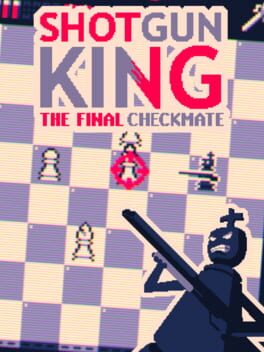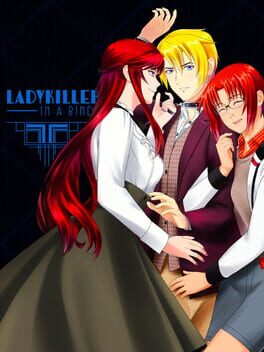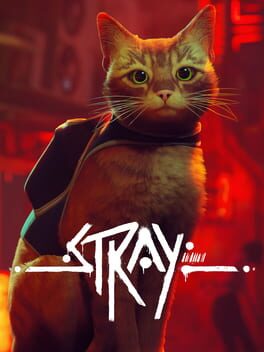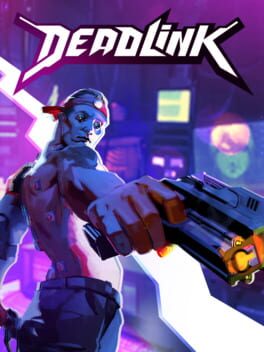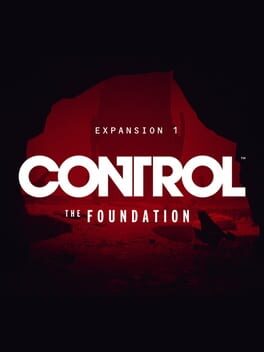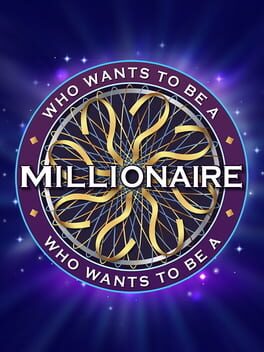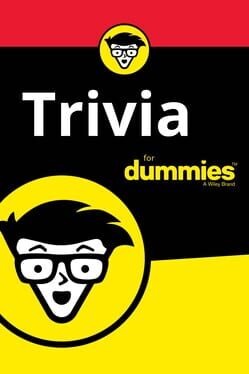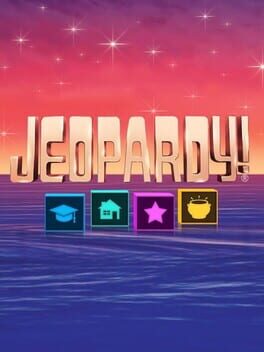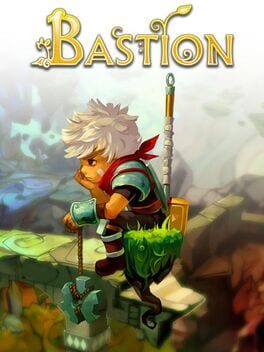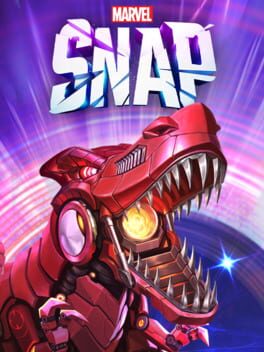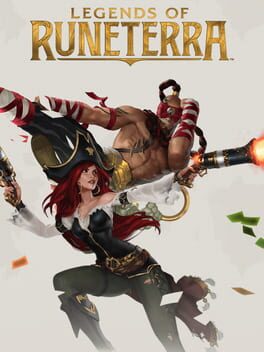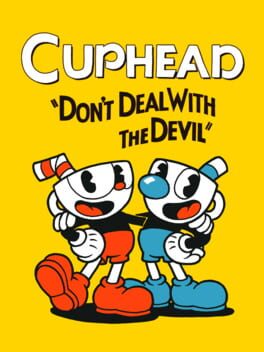Whom
BACKER
A fun concept, but I don't feel the need to go beyond my first successful run. The way you feel weaker and weaker after every floor just doesn't pull me back in, and the relative lack of upgrade options doesn't make me feel like trying to do different builds or whatever. It's a shame, since I can easily see a variant of this game existing that I would adore.
2016
Much as I deeply respect Christine Love, this game is so Messy (in the neutral sense) and filled with complex intertwining social situations that are just too much for my almost certainly autistic ass to keep straight that at some point I was more or less just reading for the sex scenes. I think that by choosing the most willing and subby options at every opportunity (a real shocker, if you know me), I dodged most of the things that get people riled up and engaging in extremely emotionally charged debate, so I have very little to add to any of that except that I respect things that choose to be queer and lefty and still messy, and that we generally ought to give those things the benefit of the doubt to see what we can squeeze out.
I leave this with a neutral rating simply because between all the bits I enjoyed, there was a ton of being thrown in situations that were simply too much for me. And a lot of scenes with alcohol :<
I leave this with a neutral rating simply because between all the bits I enjoyed, there was a ton of being thrown in situations that were simply too much for me. And a lot of scenes with alcohol :<
2022
While I expected to love Stray for being cute kitty game (and I do), I did not expect to get one of the most well-realized cyberpunk settings of all time, with all the anti-capitalist, anti-authoritarian, and environmentalist themes that are core to the genre but are increasingly phased out with it being watered down again and again.
For me, the best art has both the gentle touch of love and the strong punch of revolutionary spirit. This is overflowing with both AND I get to be a cute kitty making friends with robots who smile at me when I cuddle up with them :3
For me, the best art has both the gentle touch of love and the strong punch of revolutionary spirit. This is overflowing with both AND I get to be a cute kitty making friends with robots who smile at me when I cuddle up with them :3
2022
Despite being very much the opposite when I was younger, I'm not really much of a lore nerd for anything anymore. I'm generally much more interested in approaching things critically and so diving into that kind of stuff isn't really to my taste: if anything, I'm a bit annoyed by how much we tend to focus on canonicity and extended lore nowadays. For me personally, it often feels like a shallower kind of appreciation than thinking about art in relation to other things. That isn't to put down people who love that kind of thing or to say that the way they're into art is less sophisticated than the way I am...that'd be shitty. I just mean that in my experience, that's not the best way for me to interact with games anymore. But god damn it, I want to immerse myself in Control lore and its delightfully animated cast, and this DLC scratches that itch perfectly.
Here we get an opportunity to see Jesse grow more confident and willing to throw her weight around instead of blindly following the instructions of those around her, and her defiance of The Board is so goddamn satisfying. Plus, diving into the history of the FBC in the Oldest House is exactly what I wanted and I could gladly dive into hours of it. I want to know everything and I want knowing everything to open up more that I cannot know. I love the feeling of diving further and further into the unknown and understanding less the more I know, and Control captures that better than nearly anything I can think of
Oh and I love that the Half-Life/Portal influence that was already very present in the base game gets turned up even higher in The Foundation. While spaces are still somewhat open, there's a more Valveian tinge to the environmental design and approach to player psychology that keeps things moving without making you feel too railroaded and as a bonus giving your surroundings even more character. I hope that this more careful approach is built upon in the sequel, as those moments of "where the fuck do I go??" are easily the worst thing about this game.
Here we get an opportunity to see Jesse grow more confident and willing to throw her weight around instead of blindly following the instructions of those around her, and her defiance of The Board is so goddamn satisfying. Plus, diving into the history of the FBC in the Oldest House is exactly what I wanted and I could gladly dive into hours of it. I want to know everything and I want knowing everything to open up more that I cannot know. I love the feeling of diving further and further into the unknown and understanding less the more I know, and Control captures that better than nearly anything I can think of
Oh and I love that the Half-Life/Portal influence that was already very present in the base game gets turned up even higher in The Foundation. While spaces are still somewhat open, there's a more Valveian tinge to the environmental design and approach to player psychology that keeps things moving without making you feel too railroaded and as a bonus giving your surroundings even more character. I hope that this more careful approach is built upon in the sequel, as those moments of "where the fuck do I go??" are easily the worst thing about this game.
2019
One of those rare, stunningly beautiful moments when an unbelievably ambitious and inspired project gets the budget and talent to become the fullest and grandest version of itself possible.
Perfect if you need a reminder of what AAA games are actually capable of. Much as I'd like that side of the industry to burn, its excesses can occasionally spill into the right places.
Perfect if you need a reminder of what AAA games are actually capable of. Much as I'd like that side of the industry to burn, its excesses can occasionally spill into the right places.
2020
2009
Truly excellent, and had I played it in 2009 this would have been my favorite game. From a modern perspective though, this is all foundation. Each and every idea present here has been iterated on and warped into numerous different forms, almost always landing in a better spot.
This leaves Demon's with little of an identity of its own other than the much more cryptic and confusing early phases which made me bounce off it many times before truly getting into it. This feels like the most these games have ever believed in their multiplayer features: the thought seems to be that other people can tell you what to do, so things are hidden and left without explanation much more often. For this reason, I would highly suggest connecting to The Archstones custom server so you can see messages and phantoms and the like. Later games would fall back less and less on the guidance of players, so seeing From lean deeply into the concept is lovely.
Once you get it the groove, though, you begin to steamroll everything. Nearly all the bosses are complete pushovers and the biggest challenge is in the lack of bonfire-like checkpoints and relatively sparse shortcuts (they're as satisfying as ever when you find them, albeit not nearly as tightly integrated and natural as in Dark Souls). You become a god with infinite health regeneration very quickly, and this is a shame. Later, estus would solve this nicely, putting more control in the hands of the developers over how worn out players will be by a certain part in an area.
Aesthetically this feels a touch more in step with the weird somewhat small scale Japanese productions that came before it (I'm particularly reminded of Chaos Legion), but is nowhere near as cohesive and pointed as a Dark Souls or Sekiro, nor as over-the-top and breathtaking as a Dark Souls III or Elden Ring. What it does do is let you linger in the feeling that you've found something special, raw, and obscure (even if you know it isn't the latter). It feels like in the infinite line of universes, we're one or two off from the one where Demon's Souls was a forgotten gem only remembered by extreme connoisseurs of Japanese esoterica. I don't want to downplay just how fucking cool that is, but at other moments I step in each area and think about the other Fromsoft games which did that archetype better.
Regardless, much as I'd like to view this separately from the genre it spawned, the reality is that I am a person who has played those other games and I can't just pretend I'm not. Even from this perspective though, this game shows the same raw brilliance in design one would expect from any souls game...it simply lacks the extra something which makes the others even more special.
This leaves Demon's with little of an identity of its own other than the much more cryptic and confusing early phases which made me bounce off it many times before truly getting into it. This feels like the most these games have ever believed in their multiplayer features: the thought seems to be that other people can tell you what to do, so things are hidden and left without explanation much more often. For this reason, I would highly suggest connecting to The Archstones custom server so you can see messages and phantoms and the like. Later games would fall back less and less on the guidance of players, so seeing From lean deeply into the concept is lovely.
Once you get it the groove, though, you begin to steamroll everything. Nearly all the bosses are complete pushovers and the biggest challenge is in the lack of bonfire-like checkpoints and relatively sparse shortcuts (they're as satisfying as ever when you find them, albeit not nearly as tightly integrated and natural as in Dark Souls). You become a god with infinite health regeneration very quickly, and this is a shame. Later, estus would solve this nicely, putting more control in the hands of the developers over how worn out players will be by a certain part in an area.
Aesthetically this feels a touch more in step with the weird somewhat small scale Japanese productions that came before it (I'm particularly reminded of Chaos Legion), but is nowhere near as cohesive and pointed as a Dark Souls or Sekiro, nor as over-the-top and breathtaking as a Dark Souls III or Elden Ring. What it does do is let you linger in the feeling that you've found something special, raw, and obscure (even if you know it isn't the latter). It feels like in the infinite line of universes, we're one or two off from the one where Demon's Souls was a forgotten gem only remembered by extreme connoisseurs of Japanese esoterica. I don't want to downplay just how fucking cool that is, but at other moments I step in each area and think about the other Fromsoft games which did that archetype better.
Regardless, much as I'd like to view this separately from the genre it spawned, the reality is that I am a person who has played those other games and I can't just pretend I'm not. Even from this perspective though, this game shows the same raw brilliance in design one would expect from any souls game...it simply lacks the extra something which makes the others even more special.
2022
2017
2011
Supergiant is unique among the earlyish indie revolution studios for arriving on day 1 with technically proficient visuals and sound design, standing out as the most presentable of the bunch. Their contemporaries tended to be focused on a then-radical return to the mechanical purity of the NES era or pushing procedural generation out of the realm of terminal games into the light of accessibility, while Supergiant instead focused first and foremost on making something polished to standards that at the time only really existed in the realm of AAA.
And that's what makes going back to the start of Supergiant so weird: they had all the ability in the world to make a masterpiece and polish it to perfection, yet seemingly had no ideas they wanted to flesh out. Bastion just kind of piddles around, never really having anything to say or do. Its barebones mechanics, flashy hand-painted visuals, and ever-present solemn folksy narration prepare the player for some kind of emotional ride, experimental revelation, or strong thematic core which never really comes. It's disappointing, since god knows you're not having fun with each new weapon being slightly more annoying and less satisfying to use than the last.
Granted, this came out at a time where attempting to be "serious" in any remotely popular games was still very much in its infancy. Outside of the world of text-based interactive fiction, this was still the era of Heavy Rain silliness and its backlash. As the preconditions for gamergate fell into place, tension mounted over games trying to be anything besides simply fun tests of mechanical mastery. To be perfectly blunt, the fledgling indie gaming audience was not really willing to accept games which were primarily focused on trying to say things. To many of them, political messaging and narrative complexity were exactly what the indie movement existed as a reaction to. They missed the games where running and jumping were all you really needed.
Bastion did, in its own way, fly in the face of that. There's next to nothing to dig into in terms of mechanics, with the game instead pushing you to listen to the narration and let your primary takeaways be from the narrative and aesthetics This was not in any way new to gaming, of course, but for indie gamers of the time, it certainly stood out. While not particularly thematically potent in the grand scheme of things, Bastion would sure seem that way if you had been grinding your teeth while trying Super Meat Boy levels over and over for the past few months. I have to give this game at least some credit for that, even if it's banal and tame to more modern sensibilities. That is, MY more modern sensibilities.
Also, I say "technically proficient" when I refer to the art instead of "good" because to be completely honest, I ignored Bastion back then because I found it extremely muddy and busy, which I still think it is. If this game counts the number of times you fall off the map anywhere, that alone would be a testament to how awful the visual style is for actually making sense of spaces. They've improved much on this front nowadays, but I'd be lying if I said they've completely gotten past it even in Hades.
Side Note: I've always confused this game with Braid, which I still haven't played to this day due to its own ugly-ass art style.
And that's what makes going back to the start of Supergiant so weird: they had all the ability in the world to make a masterpiece and polish it to perfection, yet seemingly had no ideas they wanted to flesh out. Bastion just kind of piddles around, never really having anything to say or do. Its barebones mechanics, flashy hand-painted visuals, and ever-present solemn folksy narration prepare the player for some kind of emotional ride, experimental revelation, or strong thematic core which never really comes. It's disappointing, since god knows you're not having fun with each new weapon being slightly more annoying and less satisfying to use than the last.
Granted, this came out at a time where attempting to be "serious" in any remotely popular games was still very much in its infancy. Outside of the world of text-based interactive fiction, this was still the era of Heavy Rain silliness and its backlash. As the preconditions for gamergate fell into place, tension mounted over games trying to be anything besides simply fun tests of mechanical mastery. To be perfectly blunt, the fledgling indie gaming audience was not really willing to accept games which were primarily focused on trying to say things. To many of them, political messaging and narrative complexity were exactly what the indie movement existed as a reaction to. They missed the games where running and jumping were all you really needed.
Bastion did, in its own way, fly in the face of that. There's next to nothing to dig into in terms of mechanics, with the game instead pushing you to listen to the narration and let your primary takeaways be from the narrative and aesthetics This was not in any way new to gaming, of course, but for indie gamers of the time, it certainly stood out. While not particularly thematically potent in the grand scheme of things, Bastion would sure seem that way if you had been grinding your teeth while trying Super Meat Boy levels over and over for the past few months. I have to give this game at least some credit for that, even if it's banal and tame to more modern sensibilities. That is, MY more modern sensibilities.
Also, I say "technically proficient" when I refer to the art instead of "good" because to be completely honest, I ignored Bastion back then because I found it extremely muddy and busy, which I still think it is. If this game counts the number of times you fall off the map anywhere, that alone would be a testament to how awful the visual style is for actually making sense of spaces. They've improved much on this front nowadays, but I'd be lying if I said they've completely gotten past it even in Hades.
Side Note: I've always confused this game with Braid, which I still haven't played to this day due to its own ugly-ass art style.
2022
This is one of those games where it's hard not to make up a (likely somewhat accurate) narrative in your head about the tension between the developers and their bosses. This is the freshest take on its genre in many years, something that ought to belong to us all as a folk game. All games should, but you get my meaning. This is wonderful new territory, opening up massive tracks of design space almost entirely outside of the traditional grounds for tcgs/ccgs. And yet it squeezes you for cash like it's any other abusive mobile game.
The weird tragedy of Marvel Snap is that the developers who actually make the damn thing overperformed. Looking at its marketing materials and its monetization scheme, it's clear that Snap was never really setting out to change things or make a big splash. It was to be old school mobile whale bait using a valuable property. But the devs poured too much love in and had too many new mechanical ideas and oops! We accidentally attached a masterpiece to this store begging you for $100 to get a few jpegs that slows your progress to a crawl if you don't go digging in your purse.
Bless the artists here doing everything they can to genuinely contribute to and transform what competitive games are and can be. Fuck Disney and the studios they contract for shit like this.
Credit where it's due: it's very rare you'll get a sense of "card envy" driving you to buy. The matchmaking here prioritizes your collection level to an almost absurd degree, meaning that you are largely playing against people with the same cards as you. The pool system allows a bit of variety between two players at the same collection level, but in practice you and your opponent are essentially working with the same tools.
I will continue playing this, as I find the gameplay and laddering experience intrinsically rewarding and mindbending in ways that activate new parts of my brain I didn't know were resting in there. If you're more motivated by getting shiny new things (which is fine! I sure love some of that as well) and not so much self-improvement and the richness of competition, I'd stay away for now, as this will only frustrate you with its drip-feeding.
---
The kinds of crowds I tend to hang around and the kinds of criticism I tend to read lead me to a lot of people turning their nose up at the very sight of Marvel. I get it and carry more then a little resentment when it comes to the cultural monolith that is Disney, but personally I'll have none of that sneering dismissal of "capeshit". I only hope that as Marvel's cultural relevance drops from "primary touchstone for all of popular culture" to "one very popular setting/brand among others", that hostility will cool down and people won't be walking around finding any opportunity to shut down others for liking comic books and movies too much. There's something to be said about toxic fanboys doing their thing and being obnoxious in the opposite way, but I won't comment since they essentially do not exist in the slices of the world I inhabit.
I mention that just to preface saying that Marvel's massive cast of characters with lots of individual charm, pre-existing emotional connections, and general flair makes for a pretty flavorful card game, all things considered.
The weird tragedy of Marvel Snap is that the developers who actually make the damn thing overperformed. Looking at its marketing materials and its monetization scheme, it's clear that Snap was never really setting out to change things or make a big splash. It was to be old school mobile whale bait using a valuable property. But the devs poured too much love in and had too many new mechanical ideas and oops! We accidentally attached a masterpiece to this store begging you for $100 to get a few jpegs that slows your progress to a crawl if you don't go digging in your purse.
Bless the artists here doing everything they can to genuinely contribute to and transform what competitive games are and can be. Fuck Disney and the studios they contract for shit like this.
Credit where it's due: it's very rare you'll get a sense of "card envy" driving you to buy. The matchmaking here prioritizes your collection level to an almost absurd degree, meaning that you are largely playing against people with the same cards as you. The pool system allows a bit of variety between two players at the same collection level, but in practice you and your opponent are essentially working with the same tools.
I will continue playing this, as I find the gameplay and laddering experience intrinsically rewarding and mindbending in ways that activate new parts of my brain I didn't know were resting in there. If you're more motivated by getting shiny new things (which is fine! I sure love some of that as well) and not so much self-improvement and the richness of competition, I'd stay away for now, as this will only frustrate you with its drip-feeding.
---
The kinds of crowds I tend to hang around and the kinds of criticism I tend to read lead me to a lot of people turning their nose up at the very sight of Marvel. I get it and carry more then a little resentment when it comes to the cultural monolith that is Disney, but personally I'll have none of that sneering dismissal of "capeshit". I only hope that as Marvel's cultural relevance drops from "primary touchstone for all of popular culture" to "one very popular setting/brand among others", that hostility will cool down and people won't be walking around finding any opportunity to shut down others for liking comic books and movies too much. There's something to be said about toxic fanboys doing their thing and being obnoxious in the opposite way, but I won't comment since they essentially do not exist in the slices of the world I inhabit.
I mention that just to preface saying that Marvel's massive cast of characters with lots of individual charm, pre-existing emotional connections, and general flair makes for a pretty flavorful card game, all things considered.
2020
Burying a roguelite deckbuilder into a competitive ccg as its card unlock system is so endlessly brilliant that it just makes me wish it was done everywhere. Can you imagine a Magic-based one? I'd never do anything else. Anyway, this is the best refinement of the traditional tcg into a streamlined online game I've yet seen. It's overflowing with both fresh ideas and subtly different spins on genre staples that make it feel both intimately familiar and endlessly exciting as you take in all the new possibilities.
I've been away from my main pc for a couple months now and so the vast majority of my gaming time has just gone to card games. This and now Marvel Snap have become My Games lately, and I'm having a damn good time. Don't let the League of Legends setting push you away...I'm certainly no fan of that or of anything else Riot has done, but somehow they nailed this one, even down to the monetization being the fairest of any of its competitors. Like, you technically CAN just buy cards, but for the most part you'd be a fool to do so. Just ladder and play path of champions and you'll be building meta decks in no time.
I've been away from my main pc for a couple months now and so the vast majority of my gaming time has just gone to card games. This and now Marvel Snap have become My Games lately, and I'm having a damn good time. Don't let the League of Legends setting push you away...I'm certainly no fan of that or of anything else Riot has done, but somehow they nailed this one, even down to the monetization being the fairest of any of its competitors. Like, you technically CAN just buy cards, but for the most part you'd be a fool to do so. Just ladder and play path of champions and you'll be building meta decks in no time.
2017
